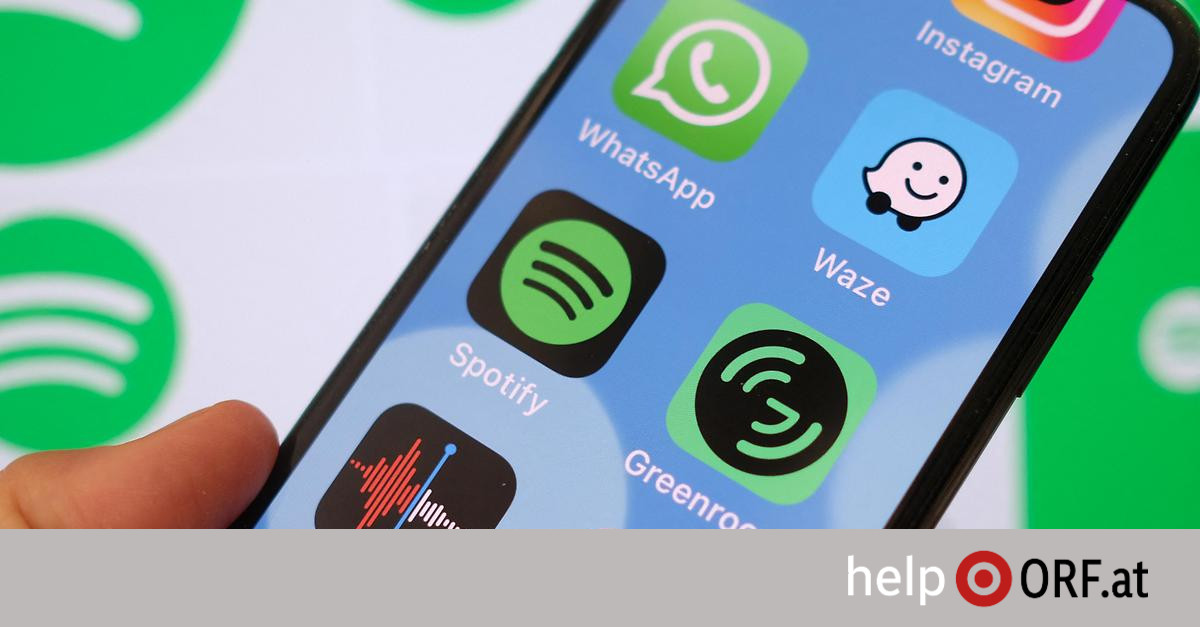Since the onset of the Covid pandemic, more and more people have filed reports with the Styrian Anti-Discrimination Agency and complained that they feel deprived due to increased digitalization, says the head of the Styrian Anti-Discrimination Agency, Daniela Grabovac. Offers increasingly require the use of apps and QR codes, which excludes people without a smartphone.
There are no discounts without the application
Recently, two retirees contacted the counseling center and complained that they were not getting certain discounts at supermarkets where they shop regularly because they could not use the grocery chain’s apps without a smartphone. Both women have cell phones, one of them an elderly person’s cell phone, but no apps can be installed on them.
Grabovac says you can use food chain Lidl and Spar’s apps, the ‘Lidl Plus Advantage App’ and ‘Spar App’, to buy cheaper from the supermarket. The Styrian Anti-Discrimination Agency tried to intervene with the companies to no avail.
Lidl: There is no analogue alternative for technical reasons
Spar wrote to the Advice Center that it is common for consumers to not be able to access all promotions always and everywhere. This also applies to regional publications or coupons from magazines. In addition, the savings app is available to everyone. According to the company, anyone who decides not to buy a smartphone is giving up exclusive offers.
Lidl also sees no reason to make discounts on its app available in analogue. Lidl Plus is a voluntary add-on offer, which we know will not reach all customers. For technical reasons, the service can only be viewed using a smartphone. According to Lidl Österreich GmbH, there is no comparable alternative.

First the smartphone, then the goods
A similar problem occurs with Too Good To Go, a platform where consumers can buy cheap food packages that expire the same day. The anti-discrimination agency was contacted by an emergency aid recipient who also did not have a smartphone. The woman used the app on her laptop, selected the package she wanted and paid for it online. To pick up her groceries at the supermarket, she printed out a confirmation code. But at the branch I was informed that collection is only possible via smartphone. A printed piece of paper is not enough.
In response to a written request, Too Good To Go confirmed this. When the purchased bag is delivered, the purchase must be confirmed by swiping the screen, according to the company.
“The poor and the elderly are discriminated against
“It is common that everyone in this country has a smartphone,” says Daniela Grabovac of Styria’s anti-discrimination agency. But this is not the case. She believes that there are two groups in particular that are exposed to discrimination in the cases mentioned. On the one hand, these are people who cannot afford a smartphone because, for example, they have debt or are unemployed. The other group is the elderly who are not familiar with using applications on smartphones.
PC World: Retailers must offer alternative methods
Reinhard Busch, professor of applied computer science at Graz University of Technology and an adviser to the federal government on IT issues, believes that older people should be able to enjoy the same benefits as others, regardless of whether they have technology or not. Supermarket chains should offer these people an alternative way to access offers, because older people on average have less access to technologies. Bush says discrimination against these groups is a problem.
The computer science professor says there are also technical reasons why some of the reductions are linked to smartphone use. For example, some QR codes are only valid once. “It’s like a bill or a coupon that’s only valid once,” Bush says. Once these notes are distributed, they are used. Paper that can be copied cannot perform this function. As with apps, this requires technology behind it.
Expert: The application reduces the number of employees and enhances customer loyalty
At Spar and Lidl, Bosch suspects process improvement is the reason behind this. Anyone who purchases using the app creates less work for employees. It also improves customer loyalty: “Supermarkets want consumers to use the app,” Busch says. It is not important for companies to know the person by name, it is enough that the device is connected to the person so that he can register his shopping preferences. That’s a high value for a retailer, says Bush: “The other side of the coin is that you’re de facto excluding a group that doesn’t want to or can’t do it.”
One way to similarly offer discounts, and thus make them more accessible to people without smartphones, is through customer cards, says Reinhard Busch. The card is unique, just like Billa’s Jö card. However, this is much more expensive than an app, which is why not many companies will be willing to do this.
Companies should therefore be legally obligated to do so, Bush says. To ensure that Austrian companies do not suffer from competitive disadvantage, EU-level regulation must be taken into account. The law must be drafted in a technology-neutral manner because technological progress cannot be expected in the next few years. Neutral wording would save the legislature from having to constantly review regulations. “In addition, such laws require a lot of effort and take years to take effect,” Bush says.

“Total coffee aficionado. Travel buff. Music ninja. Bacon nerd. Beeraholic.”








More Stories
Wealthy families take more risks when it comes to money.
Salesforce and NVIDIA Form Strategic Collaboration to Drive AI Customer Innovation
Changing banks causes problems for customers